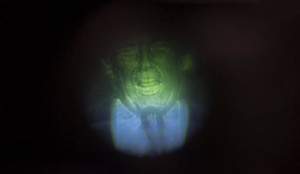6 November 2016 – If Donald Trump loses the U.S. Presidential election this Tuesday, a great many people in both America and elsewhere will breathe a huge sigh of relief. But the truth is there won’t be that much to be relieved about. In the US, Trump’s influence will linger. His campaign showed that a politician can spew outright lies and blatant hate-speech and still retain support. Others will follow his example, and even moderates will be less afraid of the truth-o-meter . That will intensify social media’s echo-chamber effect and further shrink America’s capacity for serious political debate.
Trump also convinced lots of voters (who admittedly didn’t need much convincing) that American judges are biased, the media tell only lies, elections are rigged, and no branch of government is to be trusted.
And you know what? Donald Trump was right when he said the system is rigged, but not in the way he meant. It isn’t rigged against him. He’s part of the ecosystem of media, political consultants, producers, politicians and propagandists that are rigged against “The People” – and that system is working just fine. Everyone’s in on the same game, which is essentially to ensure that “The People” gobble up what they’ve been serving – and what they’re serving is resentment, fear and anger. That was my message in my long-form essay Donald Trump, media politics and the business of outrage (now available in English and German; click here).
Whether the Republican party falls apart in the wake of Trump’s defeat or is rejuvenated, it will have this alienated, angry bloc of voters to contend with. If he wants it, the unofficial role of Republican kingmaker will be Trump’s for the taking.
But outside the U.S., too, Trumpist attitudes have been taking root, perhaps buoyed by his success. Xenophobia is sweeping Europe, as evidenced by the Brexit vote, the proliferation of new border fences, and the gains by far-right leaders in a variety of national elections. World trade is slowing and protectionism is on the rise.
- how all the intelligence services data mine Twitter, Linkedin, Instagram, etc. to build portfolios on people across the globe
- how these intelligence services (and commercial entities) fund/employ companies like Dataminr to do heavy-duty surveillance
- How companies like Geofeedia geotag almost every social media message out there
- How metadata can be altered without detection
- How algorithmic filtering works to control the flow of information for political purposes
But if you really want to worry, be wary of hacks on America’s media outlets – which are a likely election day target – and appear ill-prepared for a major cyber-attack. And more broadly, worry that those around you may succumb to dezinformatsiya, which is the Russians’ name for their system of troll armies, lies, and weaponized information that seeks to confuse and discredit democracy.
To me, this is the year knowledge died. Yes, weaponized misinformation is hardly a new phenomenon. But its effect on the U.S. 2016 presidential race and world-wide politics has been exceptionally ominous. In the U.S., a campaign of deliberate deceptions involving but not limited to foreign entities seeking to disrupt the American political process to their own ends should be ringing alarm bells for any voters.
But there’s no one left to ring them; the stewards of objective discourse have been discredited in the minds of those this campaign has targeted. Says the writer Noah Rothman:
The age in which there was universally understood and incontrovertible truth is over. The information age has given way to something more closely resembling its antonym.
So no matter who wins, then, the next U.S. president will take office in an increasingly Trumpian world. That is perhaps the Donald’s true victory: that ideas and methods that a year ago seemed beyond the pale are now increasingly accepted as a normal part of politics. And it will only get worse.
